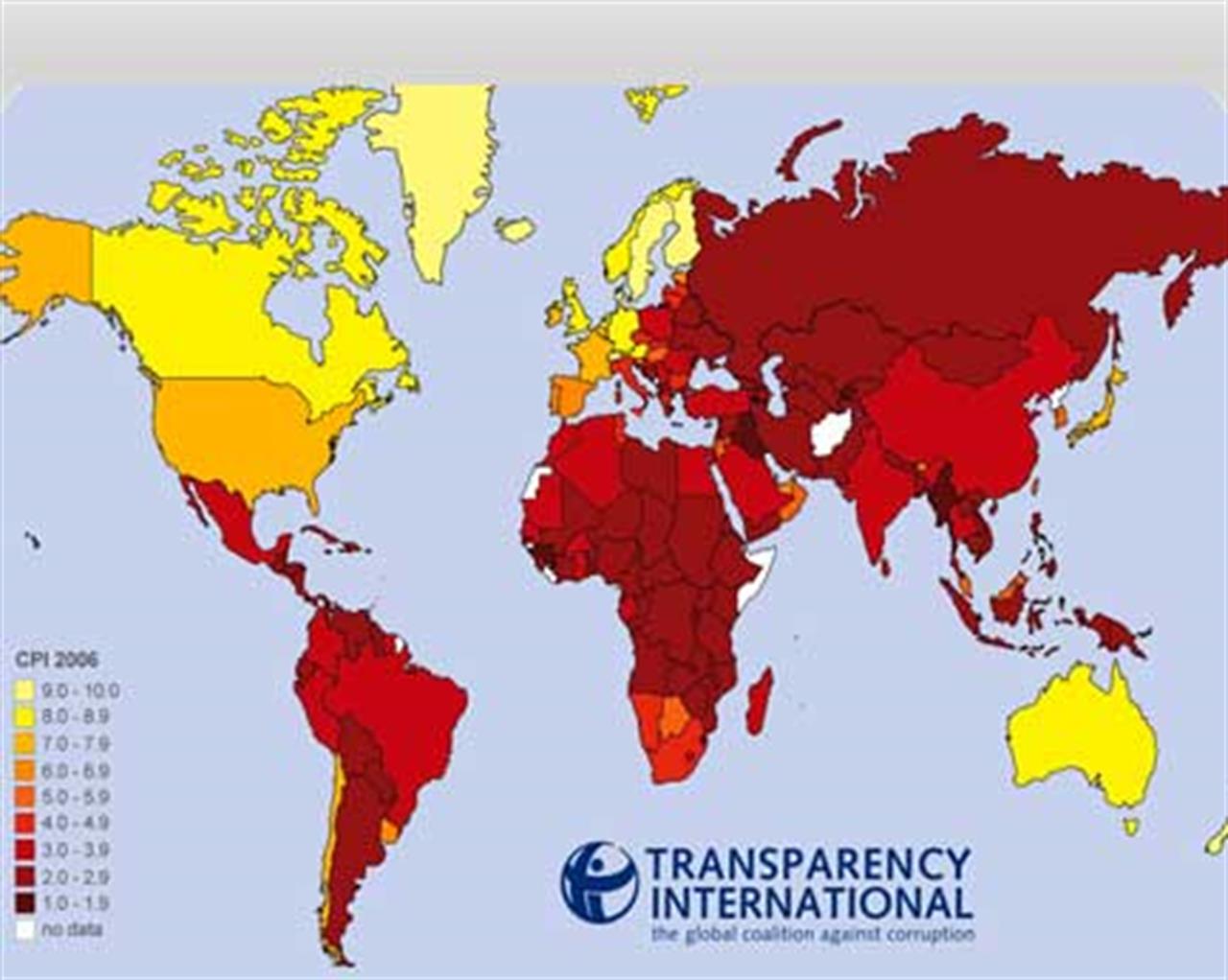Non profit
Corruption on the rise in Europe
According to Transparecy International's 2008 index rankings European countries are loosing their grip on corruption control
di Staff

European countries including the U.K., France, Finland and Bulgaria lost footing in a corruption ranking by Transparency International, which cited a series of political and business scandals as sources of shaken confidence.
The U.K. slipped to 16th from 12th place because of concerns about fighting corruption, the Berlin-based watchdog group said today in its Corruption Perceptions Index. Finland ranked fifth out of 180 countries, after being tied for first place in last year’s index, following a campaign-finance scandal.
Calling global corruption “an ongoing humanitarian disaster,” Transparency took aim at wealthy countries that have been lax in cracking down on graft. The 2006 U.K. decision to end a probe into a BAE Systems Plc defense contract with Saudi Arabia and French investigations of top officials are among incidents that have taken a toll on public perception.
“This sort of double standard is unacceptable and disregards international legal standards,” Transparency International Chairwoman Huguette Labelle said in a statement on the group’s Web site. “Beyond its corrosive effects on the rule of law and public confidence, this lack of resolution undermines the credibility of the wealthiest nations in calling for greater action to fight corruption by low-income countries.”
UK `Setback’
The BAE decision by then-Prime Minister Tony Blair, who cited national security concerns, has contributed to Britain’s 7.7-point score on a one-to-10 perception scale, down from 8.4 points last year, Transparency said. The U.K.’s anti-graft credentials have “clearly suffered a setback,” the group said.
France came under a cloud because of investigations of former President Jacques Chirac and former Prime Minister Dominique de Villepin, as well as a slush-fund scandal, Transparency said. France slipped to 6.9 from 7.3 points.
The swelling of corruption allegations in wealthy countries has been fueled by foreign bribery cases, such as a German investigation of Siemens AG, Europe’s biggest engineering company. Siemens is under separate corruption probes over some 1.3 billion euros in bribes paid to clients.
The U.S., in 18th place with a score of 7.3 points, still ranks among the lowest industrial countries, Transparency said, pointing to the lack of campaign-finance reform and the presence of special-interest lobbyists in government decisions.
“Nearly three-quarters of voters polled after the 2006 U.S. Congressional elections identified corruption as an extremely important issue,” the report said. “Since then, the persistence of corruption allegations at the federal, state and municipal level has also fueled public concern.”
Impact on Poverty
Denmark, New Zealand and Sweden topped the list as cleanest countries. Somalia ranked last, followed by Myanmar, Iraq and Haiti. While the reputation of industrialized countries has suffered with more corruption cases, perceptions of wrongdoing in the developing world have a direct impact on poverty.
“Corruption can mean the difference between life and death” in poor nations, Labello said at a briefing in Berlin. She said that “unchecked” corruption could increase the water and sanitation costs tied to the United Nations’ anti-poverty Millennium Development Goals by 30 billion euros.
The group highlighted the costs of rampant corruption in impoverished, war-torn countries and dictatorships. A one-point improvement on the index translates into an investment increase of 0.5 percent of gross national product and a 4 percent rise in average incomes, Transparency’s Johann Lambsdorff said.
Countries that improved in the ranking included Albania, Georgia, Nigeria, South Korea and Turkey, the group said.
Transparency lauded Georgia, whose score rose to 3.9 points from 3.4, for cracking down on petty corruption — leading to increased public confidence — while still suffering from large- scale corruption. Georgia, the group said, has “too heavily” focused on prosecution of crimes rather than prevention.
Bulgaria provided an illustration that accession to the European Union has little effect on corruption, the group said. The country’s score fell to 3.6 from 4.1, ranking it 72nd, as political influence of organized crime affected public activity and the judiciary remained ineffectual.
Find out more: www.transparency.org
Source: www.bloomberg.com
Cosa fa VITA?
Da 30 anni VITA è la testata di riferimento dell’innovazione sociale, dell’attivismo civico e del Terzo settore. Siamo un’impresa sociale senza scopo di lucro: raccontiamo storie, promuoviamo campagne, interpelliamo le imprese, la politica e le istituzioni per promuovere i valori dell’interesse generale e del bene comune. Se riusciamo a farlo è grazie a chi decide di sostenerci.
